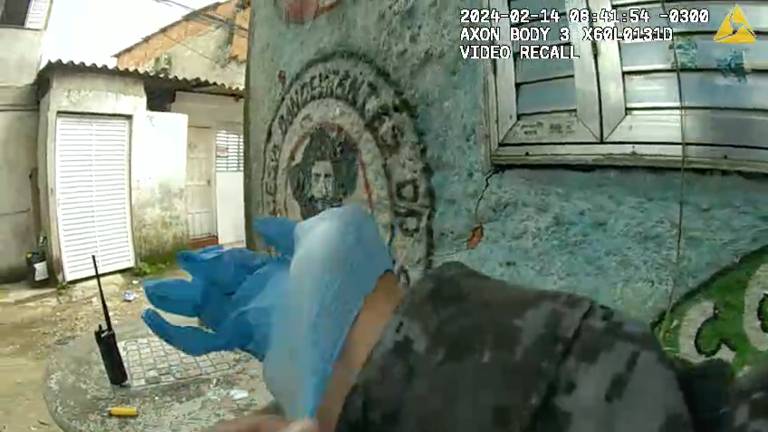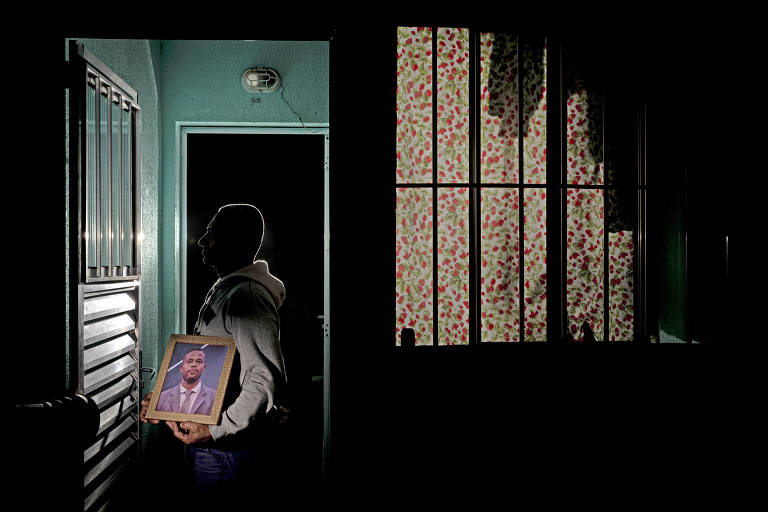Prosecutor's Office maintains records and closes investigations into deaths caused by the Military Police in Baixada Santista

The head of the Public Prosecutor's Office of São Paulo, Paulo Sérgio de Oliveira e Castro , decided to keep 11 investigations into the conduct of military police officers during the operations Escudo and Verão , which left an official death toll of 84 by the Military Police in Baixada Santista, shelved. These cases were among the last in which there was still a chance of producing new evidence and, eventually, new charges against police officers.
The decision by the state attorney general confirms the understanding of the prosecutors responsible for the investigations that there was insufficient evidence against the conduct of the police. The families of the dead, represented by the state public defender's office in these cases, had requested that the cases be unarchived.
Of the 84 deaths, prosecutors filed seven charges related to the operations, which led to 13 military police officers being charged. There are no other ongoing death investigations at the Public Prosecutor's Office, which means that all cases have already been reported or closed. The PM's actions in the region began at the end of July 2023 and ended in April of the following year.

Among the archived cases is, for example, the death of Emerson Rogério Telascrea , 33, shot three times with a rifle by police officers. As Folha showed, the lens of the body camera attached to the uniform of a sergeant who participated in the action was blocked, but it still captured the phrase "Sorry, sir", interrupted by two shots — Telascrea was already injured at this point.
None of the videos attached to the case showed the suspect armed, or the weapon that was later attributed to him. According to the prosecutors in charge of the case, there was no minimum evidence to affirm that the military police officers did not act in self-defense in the action.
There are other emblematic cases among the closed investigations, such as the death of street vendor Felipe Vieira Nunes , 30, of bricklayer's assistant Layrton Fernandes da Cruz Vieira de Oliveira , 22, and of Leonel Andrade Santos , 36, and Jefferson Ramos Miranda, 37 —the latter two, killed in the same incident. The families' defense claims that there was enough evidence to file more charges or that more evidence could have been produced, which the Public Prosecutor's Office rejects.
In the case of Nunes, for example, there was no forensic examination at the scene of his death—the police report states that the area was damaged by “heavy rain.” Two witnesses stated that he had a serious injury to his right hand and that he was incapable of holding a gun, contradicting the police report. There was no investigation into Nunes’ medical history, despite the family indicating the hospitals where he had been treated for his injuries.
The forensic photos of Layrton show marks on his shoulders and arms indicating that someone with blood-stained fingers may have moved the body. The images also show objects attributed to him—a radio communicator and a plastic bag with drugs—without any blood spatter, even though there were stains all over the floor and walls.
Leonel Andrade Santos used crutches and was a beneficiary of the BPC (Continuous Benefit Payment) for people with disabilities. According to his family, he was unable to wield a weapon — the police report indicates that he was armed. The Public Defender's Office claims that the case was closed without producing essential technical evidence and without hearing witnesses who witnessed the incident.
"In these cases, there were several situations that indicated that there was no self-defense alleged by the police officers, or at least that the police officers' version was not proven by the evidence in the case," says public defender Gabriela Pimenta, from the Specialized Center for Citizenship and Human Rights.
In some cases, not all officers from the teams directly involved in the incidents were heard. "Alteration of the crime scene, removal of lifeless bodies, obstruction of body cameras, this does not seem to have been taken into consideration when it comes to believing or not the word of the officers regarding self-defense," she added.
The defenders responsible for the cases are studying the possibility of filing civil lawsuits for damages and appealing to international human rights courts. Last year, the Inter-American Commission on Human Rights (an organization linked to the Organization of American States) asked Brazil to adopt the necessary measures to protect Layrton's family, following reports of threats and intimidation by the Military Police.
In the investigation into the death of Edneia Fernandes Silva , 31 — a mother of six children, who was shot by the police — the Prosecutor's Office concluded that the police officer did not intend to shoot the victim, and the case was forwarded to the Military Court. Therefore, the case cannot be tried by a jury, but there is still a chance that the officers will be held accountable.
Edneia was shot while police were chasing a motorcycle. The prosecutor responsible for the case disregarded the testimony of a witness, who stated that only police officers shot, and considered that they were defending themselves. The case is not among the 11 that the Public Defender's Office requested to be unarchived.
The investigation into an incident that left one survivor is still ongoing, and two other similar inquiries — with injured suspects — have been closed.
When questioned, the Public Prosecutor's Office stated that the decisions to archive the case were made after evidence such as body camera footage, witness and police interviews, and expert reports were compared. In addition, it noted that the archiving was authorized by the Court.
The agency reported that during the investigations "an active search for witnesses was carried out, resulting in the hearing of a total of 92 people; 330 videos were analyzed, totaling 166 hours of videos; 167 interrogations, in addition to numerous expert assessments", and highlighted that investigative procedures were instituted for all deaths in the two operations, and that this occurred independently of the Civil Police investigations.
The Tarcísio de Freitas government (Republicans) states that all cases involving deaths in the two operations "were rigorously investigated by the Civil Police (Deic de Santos) and the Military Police, with the support of the respective internal affairs departments, the Public Prosecutor's Office and the Judiciary. All evidence gathered during the investigations, including images from body cameras, was shared with these bodies."
The note also says that more than 1,600 suspects were arrested during Escudo and Verão. "The current administration continually invests in training personnel, in the acquisition of equipment with lower offensive potential and in public policies aimed at reducing lethality. In addition, courses for personnel are constantly improved and committees focused on analyzing procedures review and improve training, as well as investigative structures.
Among the seven cases reported by the prosecutors, only one resulted in a sentence of indictment , when the Court considers that there is the minimum evidence to refer the case to a jury trial. In it, a sergeant and a soldier are accused of killing a 49-year-old man who was lying in bed and putting on a bulletproof vest and a pistol at the scene of the incident, forging evidence .
In another case, the courts acquitted a captain and a corporal accused of the first death of a suspect in Operation Escudo in Guarujá, in 2023.
Another five criminal cases are awaiting analysis by the courts, which will decide whether or not to proceed to trial. Four of the seven complaints used body camera footage as evidence, and prosecutors have pointed to attempts to tamper with the footage by blocking the lenses or failing to point them at the bodies of the dead suspects.
One of the investigations — into the death of Allan de Morais Santos, 36 — even caught police officers instructing colleagues to block the cameras.
uol






